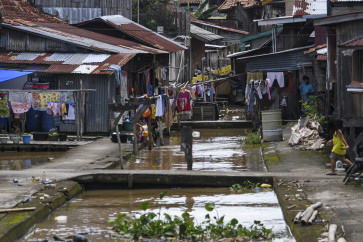Popular Reads
Top Results
Can't find what you're looking for?
View all search resultsPopular Reads
Top Results
Can't find what you're looking for?
View all search results[INSIGHT] Civil society can make a difference in national development
Individuals or groups need to express their aspirations for development amid the tendency of the government to drive and control development activities. Civil society’s activities can be seen as “nongovernmentally endorsed phenomena”.
Change text size
Gift Premium Articles
to Anyone
I
n the 1980s, Hasan Poerbo, head of the Environmental Studies Center at the Bandung Institute of Technology (ITB), built a Scavenger Home Area to allow registered scavengers to obtain legitimate ID cards and official marriage certificates.
Without ID cards, it was impossible for the “itinerant scavengers” to marry. With this problem solved, Hasan won the support of thousands of Bandung scavengers and then of the environmentally friendly mayor to make the West Java capital the cleanest city of the Preanger.
K.H. Basid, head of the An Nuqayah pesantren (Islamic boarding school) in the Guluk-Guluk area of the East Java town of Sumenep, together with his students, planted trees for many years to grow a forest on the dry and hot island of Madura. The effort gradually cooled the area and prompted rainfall, which created a creek full of water for wudhu (ablution). The cleric’s motive of planting trees was simple: To enable santris (students) to wash themselves before prayer.
Priest Bollen, the head of a Catholic church in the dry land of Maumere, East Nusa Tenggara, asked his congregants to return in the afternoon to help him build terraces to catch rain water and plant Lamtoro (river tamarind) trees. After years of the endeavor, a small creek emerged. I was invited as then-environment minister to inaugurate the creek, which was named Leila, and received a sprinkling of water taken from the creek on my head from the priest during a ritual there. Water returned to the natural areas after months of hard work by the local people to restore the forest. And everybody was happy not to have to walk a great distance for water anymore.
Saparua is an island in Maluku where Julius Tahija, a former president director of Caltex, was born. I was invited by his parents’ clan to participate in a ceremony that marked the end of Sasi. During the period of Sasi, which lasted two weeks, local people were prohibited from fishing and hunting animals to give them time for breeding. Kewang (customary security guards) supervised the enforcement of the temporary hunting ban. At the end of Sasi, villagers gathered at the mouth of a nearby river to celebrate the special day with activities, including catching fish with their bare hands in the river in a festive mood, followed by eating fresh grilled fish and traditional papeda (sago porridge) in the open air.
Through this ceremony, the Saparua customary leaders taught us that God would give people abundance provided that we allowed nature to restore and enrich itself. Man preserves nature if he lives in accordance with his need, rather than greed.
In the early years of my time as environment minister, I received a desperate call from Bambang Ismawan, the chairman of Bina Desa, a nongovernmental organization (NGO) specializing in village development, who asked me to talk to a regent to allow local villagers hold a ceremony to mark a successful rice project that was assisted by Bina Desa. The regent would not allow the ceremony to take place unless he himself concluded the project, which Bambang rejected.


















